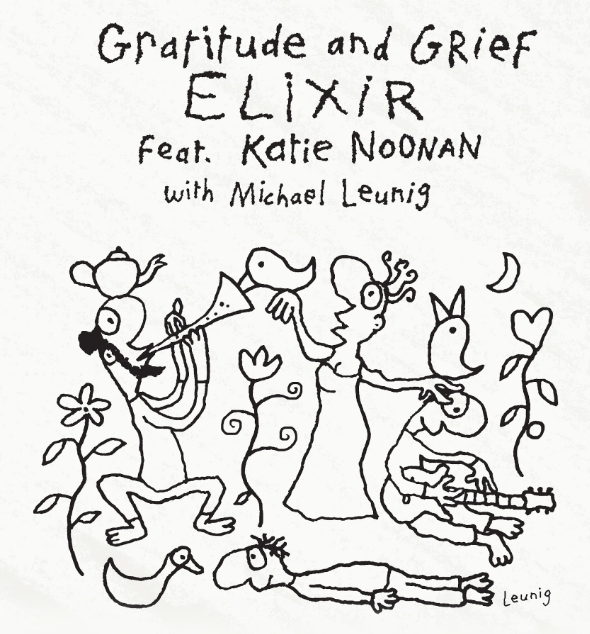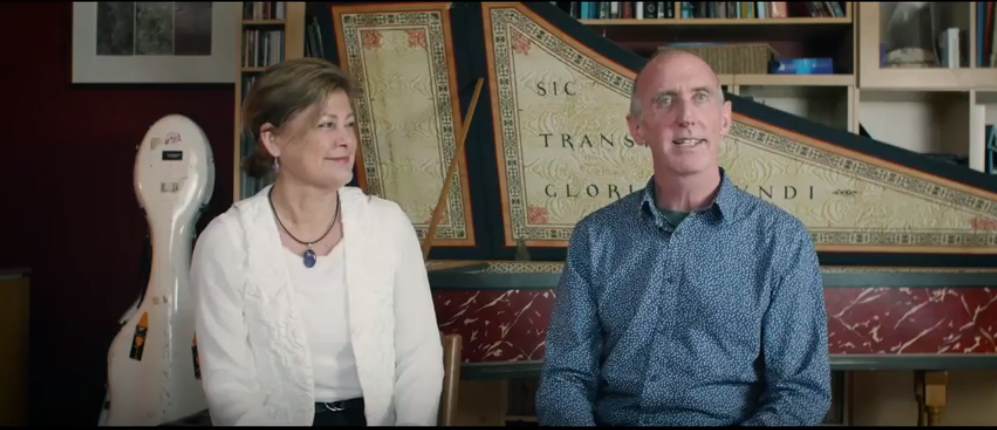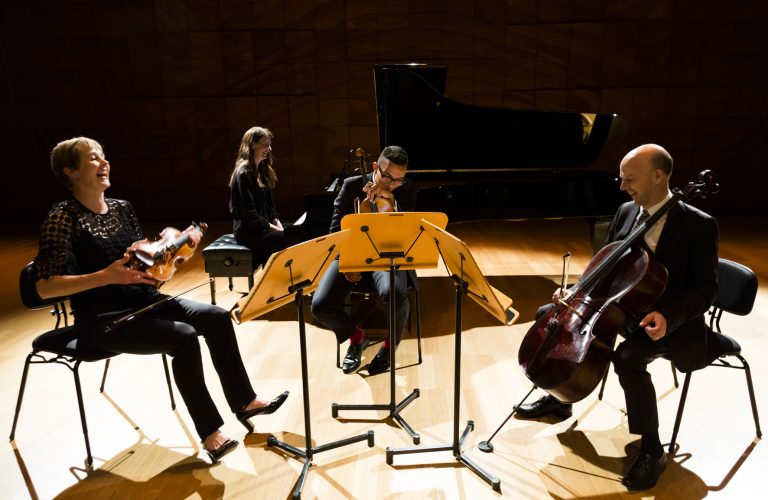‘Grace’ from Greta Bradman
 Soprano Greta Bradman’s new CD Grace on the Sony label, is for her, “a desire to take us on a journey to a place of innocent hope in life” she said to SoundsLikeSydney.
Soprano Greta Bradman’s new CD Grace on the Sony label, is for her, “a desire to take us on a journey to a place of innocent hope in life” she said to SoundsLikeSydney.
Superficially, this may seems at odds with some of the selections on this, her second CD. (Her first CD Forest of Dreams was released a year ago). There is ‘The Song to the Moon’ from Dvorak’s Rusalka, which tells of love beyond reach; there is also ‘Lascia Ch’io Panga’ from Handel’s Rinaldo, Almirena’s song of tears.
To explain this, Bradman delves into her training as a psychologist and the concept of human resilience which intrigues her. “I became fascinated by how two people could experience the same event and one could overcome it and move on, whilst another could be burdened with it for the rest of their life. I came to see, through studying psychology the ways one can consider the future – through the lens of hope, or the lens of fear. For all of us it is little of each – but I really wanted to create in some way, a collection of music that tapped into hope”.
At the other end of the time line is ‘Gortoz A Ran’, a Breton folk song written by Denez Prigent used in the soundtrack of the movie ‘Blackhawk Down’. “It is written in a completely different genre and time and is quite devoid of hope in a sense, but is about someone searching for hope in the universe rather than in the world”. She adds “I love the way that music written 30 or 300 years ago can be unified by the fact that we haven’t changed much in 200 or in 2000 years, and so I wanted to make an album of music that celebrates beauty and the hope that characterizes us as human”.
When Bradman auditioned for a degree in classical voice performance at the Elder Conservatorium in Adelaide, she was an experienced choral singer, and had performed solos in choral works and school music theatre productions. All of this was built on her innate talent as she had no formal vocal training. SLS asked her if she had to change her style of singing and technique once she commenced formal vocal studies.
“I was lucky in that as an undergraduate music student, I had a teacher who looked after young voices, being patient and letting the voice develop by itself. I was encouraged to develop a good technique that took away any tension and to wait until the voice had found its own place. I found this invaluable because I wasn’t pushing my voice in any direction. Starting as a chorister and going on to small chamber ensembles and solos with them I was exposed to a lot of different music but didn’t really have a sense of needing to shape my voice in any way other than what was completely natural. As I progressed through my 20s I sought teachers to delve into technique to expand my voice in the way I wanted to – more of building on what I had. When I listen to my voice when I was 17 and starting out at the Con – it is now richer and fuller but a product of age and maturity more than training”.
In the knowledge that voices mature at their own pace, and as a singer whose wider fame has come as an adult, does she have any advice for children and teenagers seeking their fortunes on talent shows?
“There are plusses and minuses – we live in a world where TV is the way to get exposure so talent shows can be helpful – but invariably when you’re young you’re not sure what you want to do musically and you’re likely to get directed by others down a path where they think you should go. I was able to study and enjoy music for many years first, and so I know what I love and am more confident about pursuing the music I’m passionate about. When I make a more controversial decision- like recording a Coldplay song, (‘Fix You’ on Grace) it’s a decision that I have made – no-one has made that decision for me. I choose the music not because it’s a ‘pop’ song but because I think it’s a really good song”.
She continues: “It’s tempting to pursue the quick option and as a young artiste it can work well – but you need a mature outlook, take success in your stride and not push your voice. If someone came to me as a young singer I would tell them to give themselves time”.
Bradman’s singing career to date has focused on oratorio, lieder and chamber works. Yet amongst the songs by Sibelius, Lloyd-Webber and Elton John, Grace does include some opera. Bradman confesses that she is indeed now, tempted by opera. “I did sing opera before I started my PhD studies (in psychology) – and really enjoyed those productions. But the PhD and working with trainee psychologists, took up all my time. Now I have more time and my younger son is older, I would love to pursue opera! Opera can be incredibly passionate, gorgeous and moving. I think that it’s a great medium though which to attract broader audiences back to classical music. Every classical music artiste needs to be an ambassador for the art form in the interests of helping it live and prosper into the future”.
Sydneysiders will soon hear Bradman in concert when she sings with the Sydney Philharmonia Choirs in J S Bach’s B minor Mass in mid–October. Unusually, this is one soloist who has sung this luscious work as a chorister before stepping up to the front of the stage as a soloist. “I love how jazzy and risky Bach’s music can be. It is so different to Handel – Bach is so precise and the phrases are quite instrumental. I have to think very carefully about breathing because the phrases are so astronomically long”.
Bradman went on to reveal an invaluable practice tip: “One technique I used to hone my coloratura I took from one of my favourite composers – Chopin. I used to get out my books of Chopin Etudes and play the left hand whilst singing the right hand part. I think it’s that element of continually changing instrumental line that I love about Bach”.
From Bach, the conversation turned to Australian music of which she is a firm advocate and recalls a highlight of her career being the soprano soloist in Ross Edwards’ Symphony No 2 ‘Earth Spirit Songs’ with the Adelaide Symphony Orchestra at the Adelaide Town Hall last year. “Australian works are different and offer something completely new because the unique Australian landscape is a source of inspiration for so many Australian composers and the works are a coming together of cultures and soundworlds. For example, Ross Edwards’ is one of my favourite composers – his ‘Earth Spirit Songs’ is a most remarkable work tapping into poetry written by Judith Wright and alongside verse written by Hildegard von Bingen. The fusion – the use of drums evocative of islander music with plainchant from a very long time ago creates a texture that composers in this country create when they take music from different cultures that are all still a part of Australian culture and bring it to life in one piece”.
To release two solo albums virtually within the space of 12 months (Forest of Dreams was released on August 13 2010 and Grace on August 26th 2011) is quite some achievement. SoundsLikeSydney asked Bradman about the points of difference between the two collections and how she had grown as a performer in the intervening time. “One key difference is that Forest of Dreams is an album of intimate lullabies, like singing to a child – intended to be a relaxing selection of gorgeous music. There weren’t any great dynamic shifts and it was sung in a light voice. In my choirs, I was always told to sing more quietly – so singing quietly is something I’m very comfortable with. Grace on the other hand is more passionate and diverse and I get to use my full voice more. I didn’t include any coloratura on Grace but the music does allow me to sing out more”.
In an interesting parallel, Bradman links her vocal development to her own increasing sense of confidence. “In the last couple of years coming out of my shell and embracing my full voice is something that I have needed to do and relished doing. So in a way Grace is the first step in releasing albums that reflect my full voice rather than a gentle quiet sound. It has been incredibly liberating – take for example, the album cover of Grace – I would have felt very uncomfortable wearing a dress like that a number of years ago. Now I relish it as part of the drama and it’s fantastic! Singing out is part of “This is me!” and I’m OK with that. In lieder recitals too – peeling away the layers of emotion and getting to the heart and soul – that is something I absolutely relish – to completely allow yourself to be vulnerable and invest in the music and give of yourself. It is a challenge but I also get a lot of satisfaction out of it”.
Check out the youtube video clip of the recording of Grace on the videos page.
Grace is released by Sony Music Catalogue Number 88697928022





